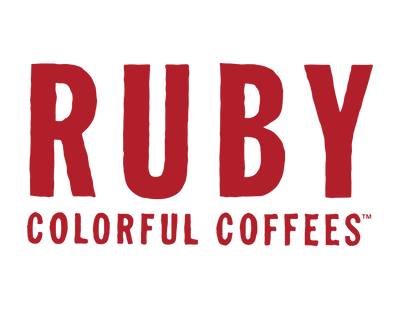Ruby does not advertise coffees as Fair Trade as certified through Fairtrade International or another certifying board, though some of the co-operatives we buy coffee from are certified as Fair Trade.
Fair Trade is a 3rd party certification system that independently verifies working conditions and the price paid to farmers and workers, but there are some limitations when it comes to small farms and independently owned farms. Fair Trade was originally designed to create better working conditions for commercial coffee farmers working on massive estates. The original goal was to ensure safer working conditions, better worker representation, and guarantee a premium price paid for that product.
Part of the original certification required that farmers operate in a co-operatively owned organization only, which ruled out the possibility of individual farms being able to become certified. This provided a huge hurdle for small, independently owned estates who immediately could not qualify for Fair Trade certification.
Another big hurdle is that it can be very expensive for an organization to become Fair Trade certified, and in order for the coffee roaster to be able to advertise the Fair Trade symbol on their coffee, they would have to pay a licensing fee to the certifying board.
Many of the farmers that Ruby works with are small, independently owned estates, and while that disqualifies them from being able to become Fair Trade certified, it also means they probably don't have the capital to be able to invest in certification themselves.
Because of this, Ruby wanted to make sure that the close relationships to farmers we had didn't appear to be looked down on for not being able to qualify for Fair Trade labels on our coffee bags, which is a big reason why we do not use the label. Most of our closest and best sourcing relationships come from farmers who would not be able to qualify for certification.
Lastly, Fair Trade only guarantees a price point based on a premium placed over the commodity trading price of coffee. As commercial-grade coffee is traded and sold based on the commodities market, that leaves Fair Trade premiums often not quite high enough for specialty coffee farmers. Fair Trade premiums only guarantee around 20% above the commodity pricing, but that means they also fluctuate with commodity pricing. If the commodity price for coffee dips heavily, so does the Fair Trade price.
The bulk of our coffee buying relies on fixed pricing negotiated directly with the coffee producers, either directly to Ruby or through an intermediary like an importer or exporter. These prices are set independent of the commodity market, are usually based on coffee quality, and these prices are often 300-400% above what commodity pricing is.
We're extremely proud of the sourcing work Ruby maintains, and we're extremely proud of the premium prices we pay for high-quality specialty coffee. Fair Trade is a useful designation, but it has much more of an impact when looking to commercial grocery store coffee brands than it has on specialty coffee farmers and specialty coffee roasters.
